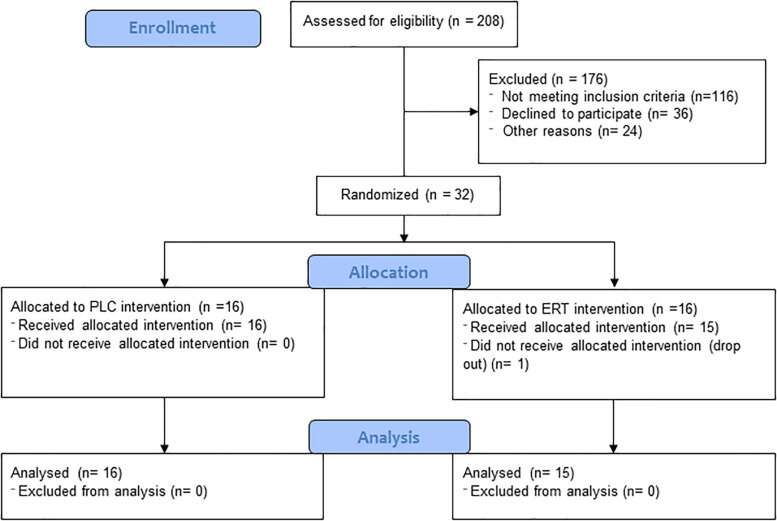Estrogen supplements found to boost the effect of strength training in menopausal women

When the menopause sets in, many women consider initiating hormonal therapy containing the sex hormone estrogen.
There are advantages and disadvantages to hormonal therapy, but studies from Aarhus University document one specific advantage when it comes to strength training and the preservation of muscle mass: women who work out while wearing an estrogen patch show greater muscle growth, compared to a group wearing a placebo patch.
Notable differences
A total of 31 healthy, early menopausal women who had not previously participated in strength training participated in the 12-week trial. Throughout the period, the women wore either a placebo patch or an estrogen patch (transdermal estrogen therapy) on their abdomen, and performed supervised strength training three times a week. There were notable differences, says associate professor Mette Hansen from the Department of Public Health, who is the head behind the study, which was part of Tine Dam's Ph.D project.
The group receiving extra estrogen had significantly greater muscle growth—the increase in muscle cross-sectional area was 7.9%, compared with 3.9% in the placebo group.
"The results add to the plus list when it comes to considering estrogen therapy in the early stages of menopause. Furthermore, when looking at the analysis for muscle stem cells, the potential for muscle growth over a longer training period seems to be greater when estrogen levels are elevated," says Mette Hansen.
Women experience increased loss of muscle mass and strength around menopause, which may be related to the fall in estrogen. The study tested the hypothesis that estrogen supplementation could enhance skeletal muscle response to strength training in women who have recently entered menopause.
"The study shows that estrogen is an important hormone for women who wish to increase their muscle mass through strength training. After 12 weeks, we saw that the increase in whole-body fat-free mass was 5.5% in the group receiving estrogen, compared to 2.9% in the placebo group. We assume that the larger increase is explained by an increase in muscle mass," says Mette Hansen.
Exercise is good—no matter what
The increase in whole-body fat-free mass is not because the estrogen group lost the most weight—on the contrary. What the studies from Aarhus University show is that the estrogen therapy counteracted fat loss through the training period.
The placebo group reduced their total fat mass—including fat on the thigh and between the organs—while the estrogen group did not. Nonetheless, the women in the estrogen group experienced greater positive changes in key health indicators, such as cholesterol levels. Only the estrogen group had an improved cholesterol profile. In addition, even though both groups improved the marker for long-term blood glucose regulation, the estrogen group improved this marker related to regulation of blood glucose the most.
It is important to exercise during menopause, whether you choose to take hormone therapy or not, the researcher stresses:
"Although the increase in muscle mass was less in the women who did not receive extra estrogen, there was still a positive trend in the placebo group. The research results thus also underline the fact that all women can optimize their risk profile through regular physical activity and should aim for following the recommendations for physical activity," says Mette Hansen.
"Whether you take estrogen supplements or not, physical training has a positive effect on the majority of lifestyle-related diseases, and gives you more energy to stay physically active well into old age. Regular physical activity has great impact on the health status of an individual even without changes in body composition. Staying physical active though life creates a self-reinforcing process that is of great importance for the individual's freedom and quality of life, especially when passing the 50–60 years."
The researchers behind the study are currently applying for funding for a collaborative study with the University of Copenhagen, in which they will monitor a cohort of women with different levels of physical activity through the menopause. The study will shed light on the impact of physical activity in different doses, intensities and types on mental health, heart health and muscle function.
The research was published last year in Frontiers in Physiology and Menopause.
More information: Tine Vrist Dam et al, Transdermal Estrogen Therapy Improves Gains in Skeletal Muscle Mass After 12 Weeks of Resistance Training in Early Postmenopausal Women, Frontiers in Physiology (2021). DOI: 10.3389/fphys.2020.596130
Tine Vrist Dam et al, Estrogen modulates metabolic risk profile after resistance training in early postmenopausal women: a randomized controlled trial, Menopause (2021). DOI: 10.1097/gme.0000000000001841

















